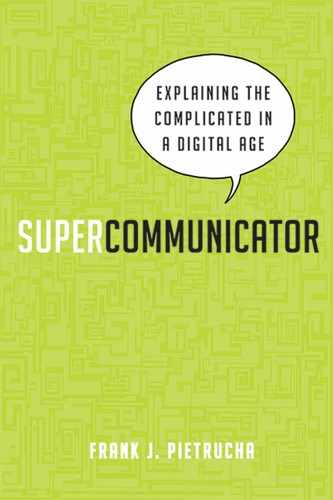Know Thy Subject |
|
Writer James Reston Jr. believes you should know your topic thoroughly, but also believes you should use your knowledge purposefully. When Australian talk show personality David Frost hired him in 1976 to investigate President Nixon's involvement in the Watergate scandal for a series of television interviews, Reston knew learning every detail about the affair would be essential to succeed. The Frost/Nixon interviews, as they became known, proved to the American people that their former president had participated in the cover-up of the break-in at the Democratic National Committee headquarters in the Watergate complex. The climax of the interviews was an admission of the cover-up by Nixon, which Reston says would not have been likely if he hadn't prepared Frost thoroughly for the epic showdown.
“Frost had to achieve the same level of knowledge as the adversary so that he [Nixon] couldn't be patronizing and say you don't understand this, you don't understand that,” Reston explained. “His mastery had to be so total that he not only asked the right questions with the right tone, but beyond that be quicker with reposts when Nixon came back with substandard answers.”
If you saw the 2008 film Frost/Nixon, you know that Reston, portrayed by actor Sam Rockwell, and Reston's colleague, Bob Zelnick, portrayed by Oliver Platt, were challenged by Frost's initial lack of commitment to properly prepare for the series of interviews. Reston, who says Frost was “distracted and distractible” during the weeks leading up to the tapings, notes that both he and Zelnick faced a difficult task in “boiling down immensely complicated material [about Nixon's presidency] so that people could understand it.” Frost was in show business…and wanted Reston and Zelnick to “translate all of this information into an interrogation strategy.” But Frost wasn't too keen at the onset of doing much of the hard work to gain mastery of the topics himself.
In order for Frost to drive Nixon to a confession, it was Frost himself who had to become completely immersed in the details of the Nixon presidency. This didn't come until four days before the final interview—when Frost made the commitment to learn everything he could in the remaining time about the subject of the final interview—the Watergate break-in. Frost rebounded from three disastrous interviews and caught the former president off guard with his confidence and subject knowledge. He then injected a new piece of information, a damaging tape recording discovered by Reston about White House henchman Charles Colson's illicit activities. This new evidence, coupled with Frost's thorough understanding of the subject, stumped Nixon. The final interview ended with Frost as the clear winner.
You need mastery of your subject. While Reston and Zelnick were available to help guide Frost, the television talk show host was only able to triumph as a skilled interviewer and inquisitor once he immersed himself fully in the facts. He studied hard and learned his material thoroughly, but he doled out his newfound knowledge carefully—not spitting out everything he studied all at once. Holding back on information—and knowing when to masterfully insert your expertise—is communications excellence. Develop a thorough understanding of your subject before trying to explain it others…or nail someone in an interview.
In the words of the highly quotable Albert Einstein, “If you can't explain it simply, you don't understand it well enough.” Thank you, Albert! This is an important point for communicators—especially for corporate trainers and professional communicators responsible for informing others on topics that are not within their area of expertise. There's a lot of knowledge we need to amass before we can take on the challenge of explaining complicated material with confidence. Too often, in our daily rush, we don't have the time or make the effort to learn all we should about new subject matter. That can come back to haunt us.
When communicators aren't sufficiently educated on the topic they need to explain, bad things can happen. The worst-case scenario is the delivery of misinformation—false statements that can lead people astray. If you're a public relations professional working for a nuclear power plant, for example, it could be problematic if you're not sufficiently schooled in the science and technology of your reactor and a crisis occurs. You may find yourself in a nuclear meltdown of your own if you're caught with insufficient project knowledge. From the worlds of finance, healthcare, science, and more—there are an unimaginable number of unpleasant situations that have occurred when communicators may have been a bit too leisurely when it came to studying their issues.
Failure to learn your topic inside-and-out can easily ruin your outreach effort. You can tell when a presenter is not fully confident in his material. You can see in his body language—how he hides behind a podium or twitches—there's a lack of uncertainty or ill ease. You probably pick up on this and subconsciously decide to mentally check out of the presentation. Maybe he's working directly from a training manual and is providing correct, useful information—but that doesn't matter; the audience has already tuned out.
Subject experts can be nervous working with writers or public relations advisors because they fear their meaty work will be reduced to superficial banter. Many of them have reason to be concerned. In the spirit of making specialized material accessible, some communicators go overboard and eliminate the essence of the subject. I marvel at television news programs that reduce subjects to a couple of trivial bullet points. They can take a topic like “storm preparedness” and tell you to stock up on water, bread, and toilet paper as if that's a revelation. Submitting a “fluff piece” to clients or giving a broad overview that glosses over important content can be just as bad.

